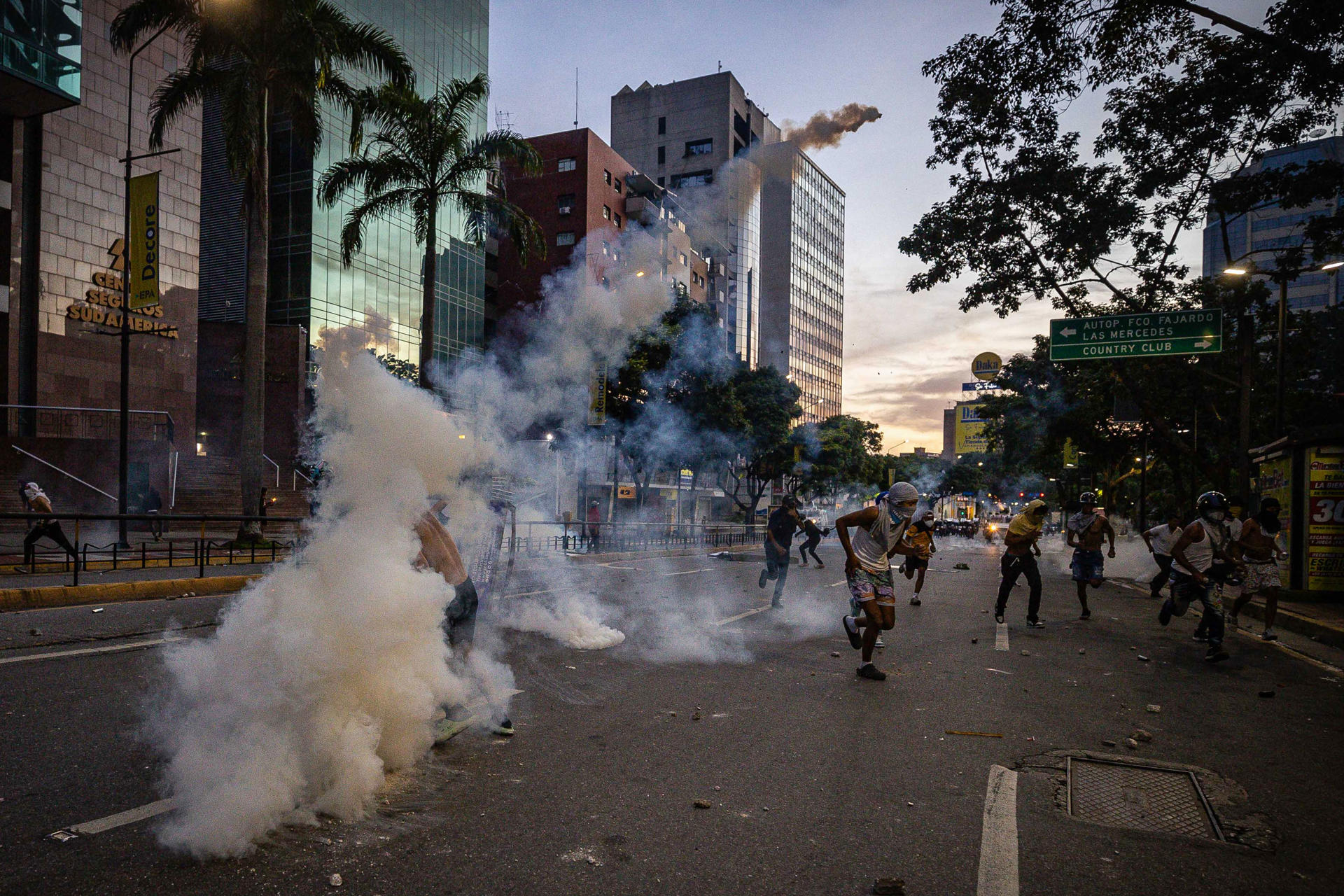UN report details crimes against humanity during presidential elections

Four days after achieving its two-year renewal, The UN Independent International Mission for Venezuela published a forceful report in which he sees reasonable grounds to believe that Nicolás Maduro’s government committed “crimes against humanity” in the July elections.
The 158-page document covers the period between September 1, 2023 and August 31, 2024 and accuses security forces and armed civilian groups pro-government accusations of murders, forced disappearances, acts of torture and sexual and gender-based violence beforeduring and after elections marked by the persecution of opponents and the repression of protests.
The security forces were “massively involved” in human rights violations such as arbitrary arrests, excessive use of force to repress protests, or cruel and degrading treatment, the document indicates, pointing to the civil intelligence services (Sebin) as responsible. and military (Dgcim), as well as the Bolivarian National Guard and the National Police.
He also assures that “The statements of the highest authorities of the State, especially after July 28, incited repression and contributed to generating a climate of hostility and violence«.
Other institutions highlighted in the report are the National Electoral Council, which “failed to comply with basic measures of transparency and integrity”, the National Assembly, “instrumental in the approval of new laws contrary to human rights and restrictive of civic and democratic space”, or the justice system, which “continued to operate with a lack of independence.”
Although previous reports from the mission established in 2019 already accused the Venezuelan State of serious human rights violations, the new document highlights that the profile of the victims of repression “expanded significantly” in the electoral period, covering not only leaders of the opposition and social.
In the electoral context, abuses were also suffered by “ordinary citizens, simply for demonstrating their disagreement with the government or with the results of the presidential elections announced by the authorities,” he indicated.
Arrests and threats
The mission chaired by Portuguese jurist Marta Valiñas highlights in the report that in the 10 months prior to the elections at least 48 people were arrested in relation to conspiracies invoked by the government, many of them in the so-called White Bracelet operation, and in the election campaign there were another 121 arrests for collaborating in opposition activities.
Those types of campaigns “served as justification for the selective repression of soldiers, politicians and civil society activists”noted the report of the group of experts, which together with Valiñas is made up of the Chilean Francisco Cox and the Argentine Patricia Tappatá.
Repression increased after the election results, when the authorities, according to the report, “launched an unprecedented campaign of mass and indiscriminate arrests,” with a number of arrests, which could be counted in the thousands, “only comparable to the protests of 2014, 2017 and 2019.
Many of these arrests were part of “operation Tun Tun,” designed to threaten and “generate fear in the population,” the mission stated.
Regarding this operation, the houses of people perceived as opponents were marked with an
Among the human rights violations highlighted in the report is the detention in the post-election period of 158 minors “accused of serious crimes such as terrorism”, detained in most cases without informing their families or lawyers, therefore They remained incommunicado for days.
Deaths in protests
The report documents at least 25 deaths, including those of two minors, during the first days of electoral protests, and notes that at least eight of these fatal incidents were in demonstrations where state security forces or groups of civilians related to the government used firearms.
The mission also reported numerous cases of torture and sexual violence, the latter not only against detainees but also against women and girls who had gone to detention centers to visit their relatives.
The torture included “punches, blows with wooden boards or cans wrapped in foam, electric shocks even to the genitals, asphyxiation with plastic bags, immersion in cold water and forced sleep deprivation,” he details.
“The serious human rights violations investigated during this period represent a continuation of the same line of conduct characterized as crimes against humanity in previous mission reports,” the document concludes.
Independent journalism needs the support of its readers to continue and ensure that the uncomfortable news they don’t want you to read remains within your reach. Today, with your support, we will continue working hard for censorship-free journalism!
